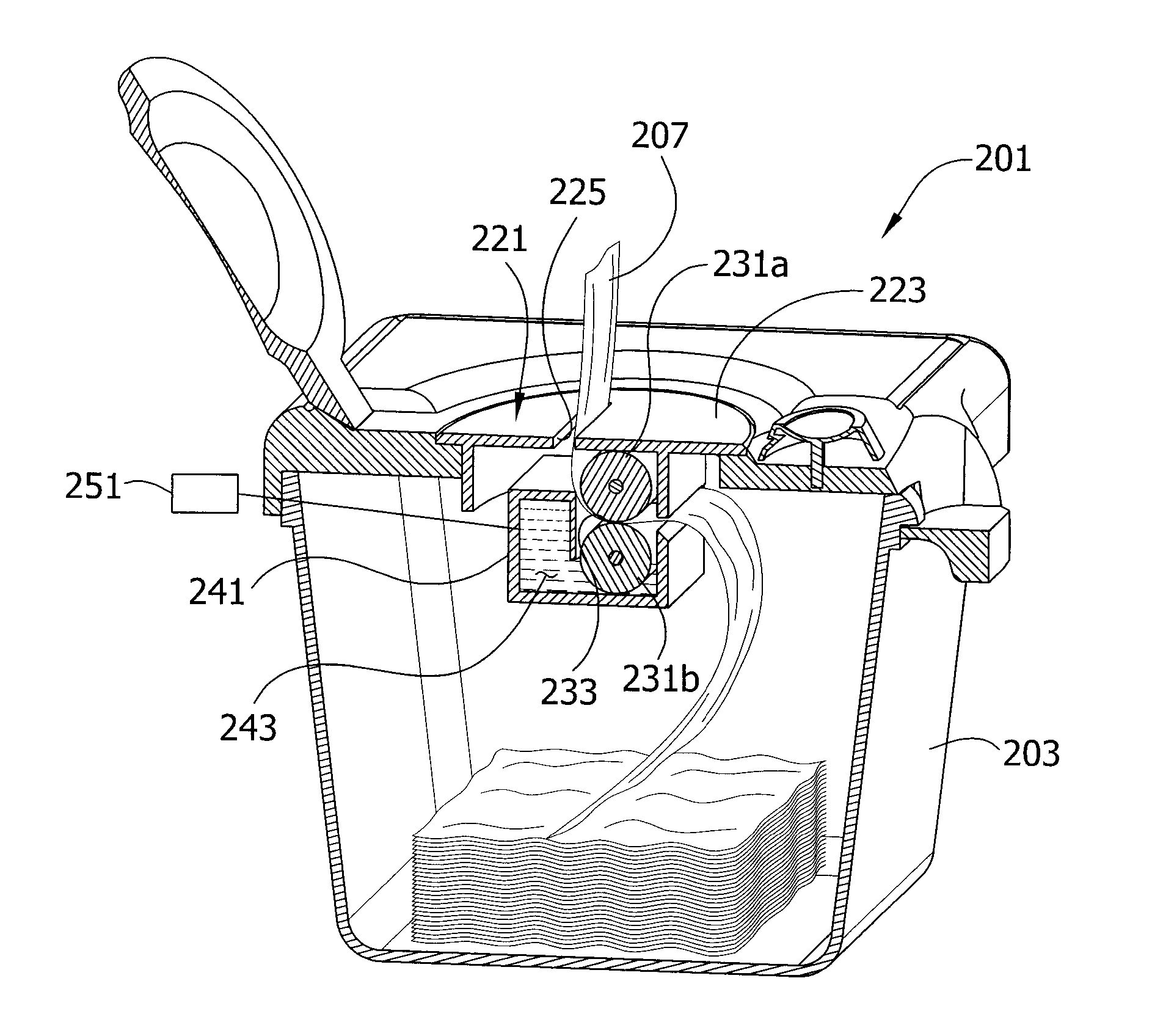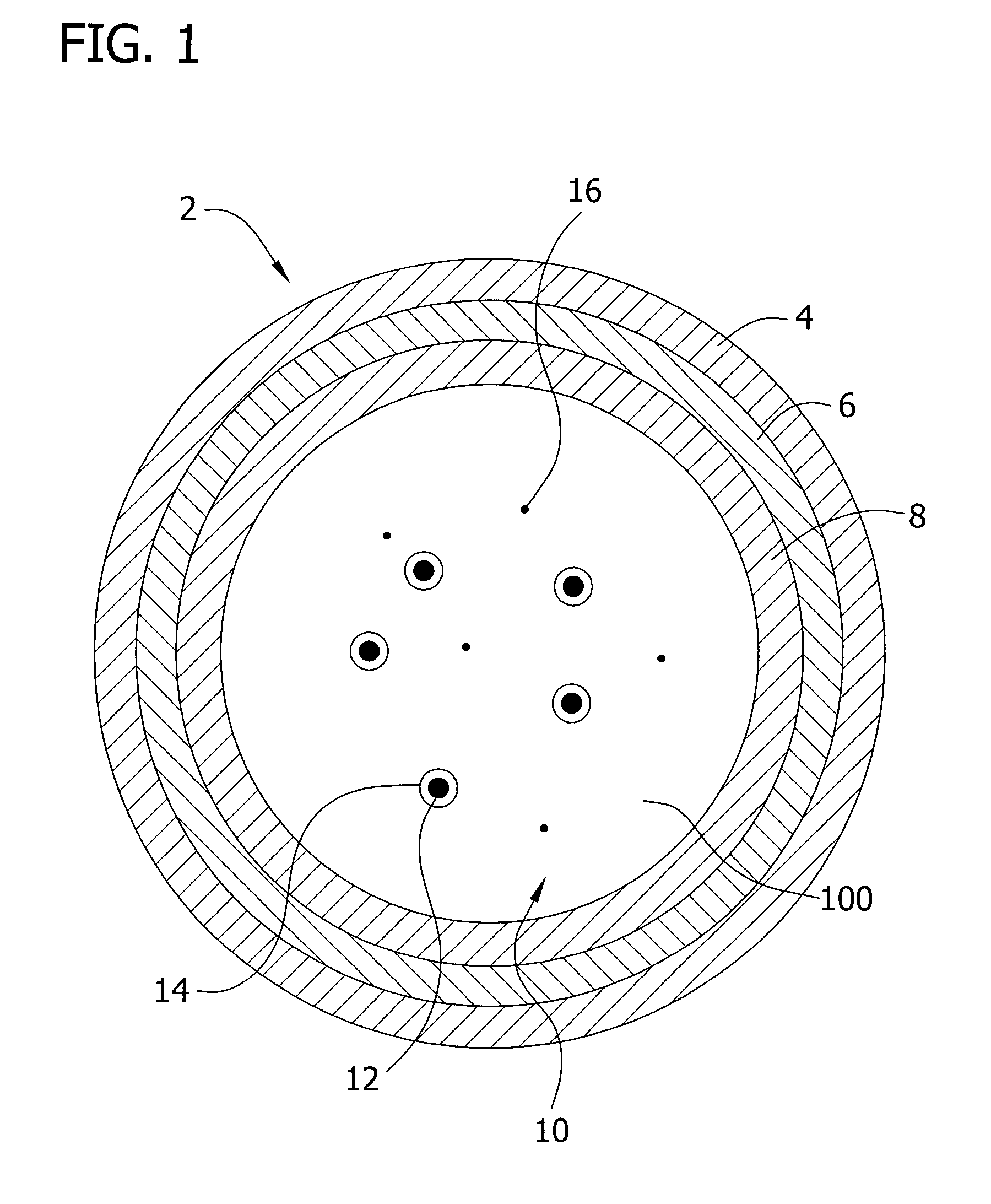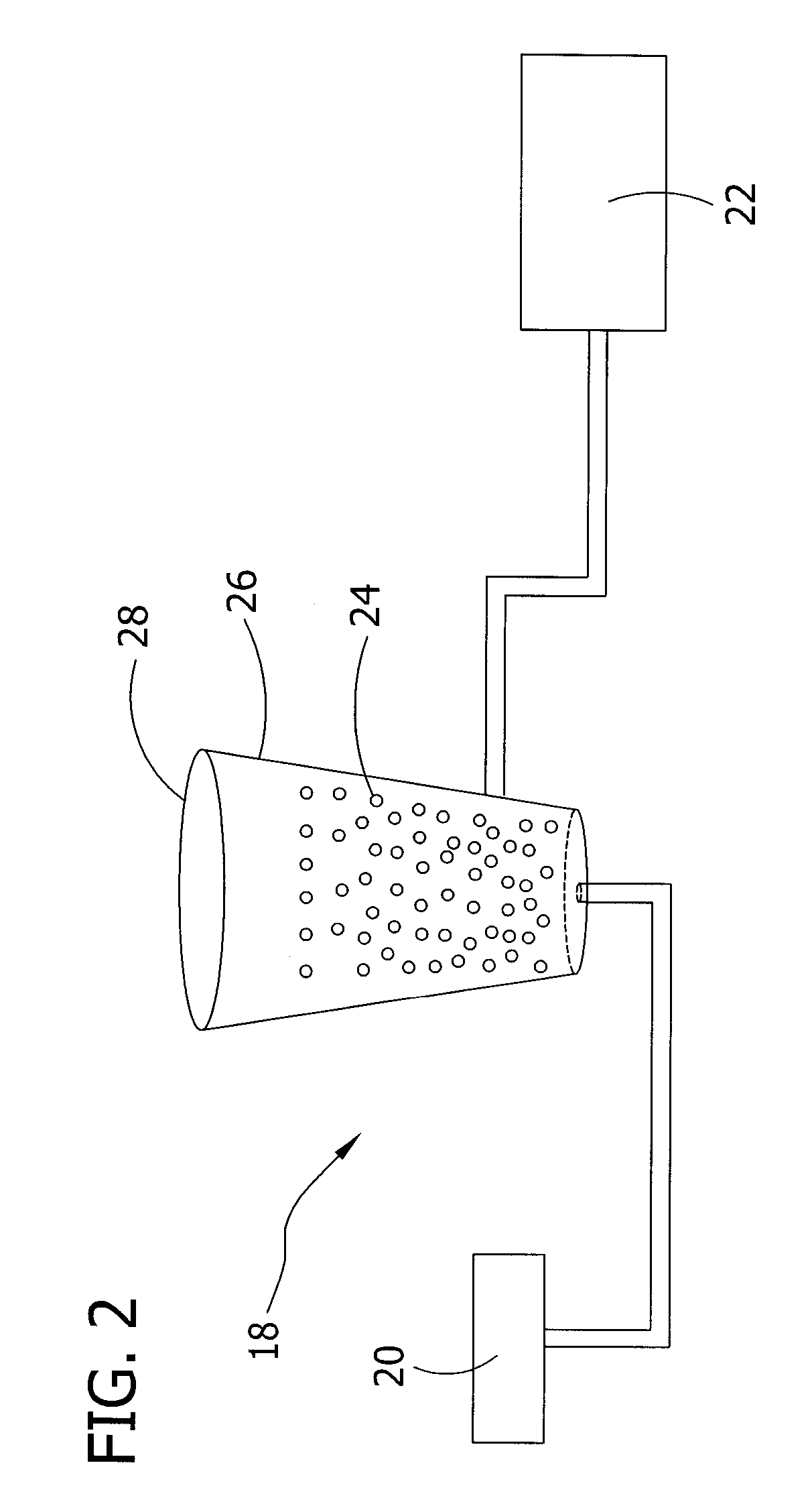Dispensing system for dispensing warm wet wipes
a technology for dispensing systems and wet wipes, which is applied in the direction of lighting and heating equipment, instruments, and domestic cooling equipment, etc., can solve the problems of affecting the overall utility and desirability of baby wet wipes currently on the market, affecting the quality of baby wet wipes, and affecting the overall utility and desirability of the product, so as to facilitate the rupturing of the micro-encapsulated delivery equipmen
- Summary
- Abstract
- Description
- Claims
- Application Information
AI Technical Summary
Benefits of technology
Problems solved by technology
Method used
Image
Examples
example 1
[0167]In this example, samples incorporating various size ranges of anhydrous calcium chloride suspended in mineral oil at 35 wt % were evaluated for their ability to generate heat upon introduction into water.
[0168]The five size ranges of anhydrous calcium chloride evaluated were: (1) less than 149 microns; (2) 149-355 microns; (3) 710-1190 microns; (4) 1190-2000 microns; and (5) 2000-4000 microns. The samples of anhydrous calcium chloride (Dow Chemical, Midland, Mich.) were dispersed in mineral oil (available as Drakeol 7 LT NF from Penreco, Dickinson, Tex.). The as received anhydrous calcium chloride were screened dry using a Gilson Sonic Sieve (Gilson Company, Inc. Columbus, Ohio) to create two sizes, a 1190-2000 micron size and a 2000-4000 micron size. These powders were then suspended at 35 wt % in mineral oil to form a slurry using a cowles mixing blade. To achieve the smaller size distributions, the anhydrous calcium chloride powder required further processing.
[0169]Specific...
example 2
[0172]In this example, samples incorporating various size ranges of anhydrous magnesium chloride suspended in mineral oil at 35 wt % were evaluated for their ability to generate heat upon introduction into water.
[0173]The four size ranges of anhydrous magnesium chloride evaluated were: (1) 1000-1500 microns; (2) 600-1000 microns; (3) 250-600 microns; and (4) less than 250 microns. To produce the samples of anhydrous magnesium chloride in mineral oil, the various size ranges of anhydrous magnesium chloride powder (Magnesium Interface Inc. (Vancouver, B.C., Canada) were suspended at 35 wt % in mineral oil (available as Drakeol 7 LT NF from Penreco, Dickinson, Tex.). To produce the samples having anhydrous magnesium chloride with size ranges of 1000-1500 microns, 600-1000 microns, and 250-600 microns, the as received anhydrous magnesium chloride powder was hand screened into the size ranges desired and the powders collected. These powders were suspended at 35 wt % in mineral oil using ...
example 3
[0176]In this Example, six compositions including a heating agent, matrix material, and various surfactants were produced. The viscosities (at 23° C.) of the compositions were measured using a Brookfield Viscometer to determine which surfactants were preferred for use in the compositions of the present disclosure.
[0177]To produce the compositions, 34.7% (by weight composition) anhydrous magnesium chloride (available from Magnesium Interface Inc., Vancouver, B.C., Canada), 64.3% (by weight composition) mineral oil (available as Drakeol 7 LT NF from Penreco, Dickinson, Tex.), and 1.0% surfactant (by weight composition) were milled together using a vertical attritor mill using one quarter inch, spherical, ceramic media for a total of 90 minutes. The surfactants utilized in the six compositions and their properties are shown in Table 1.
[0178]
TABLE 1CommercialIonicSurfactantSourceActivityAntiterra 207BYK ChemieAnionic(Wesel,Germany)Disperbyk 166BYK ChemieProprietary(Wesel,Germany)Disperb...
PUM
 Login to View More
Login to View More Abstract
Description
Claims
Application Information
 Login to View More
Login to View More - R&D
- Intellectual Property
- Life Sciences
- Materials
- Tech Scout
- Unparalleled Data Quality
- Higher Quality Content
- 60% Fewer Hallucinations
Browse by: Latest US Patents, China's latest patents, Technical Efficacy Thesaurus, Application Domain, Technology Topic, Popular Technical Reports.
© 2025 PatSnap. All rights reserved.Legal|Privacy policy|Modern Slavery Act Transparency Statement|Sitemap|About US| Contact US: help@patsnap.com



